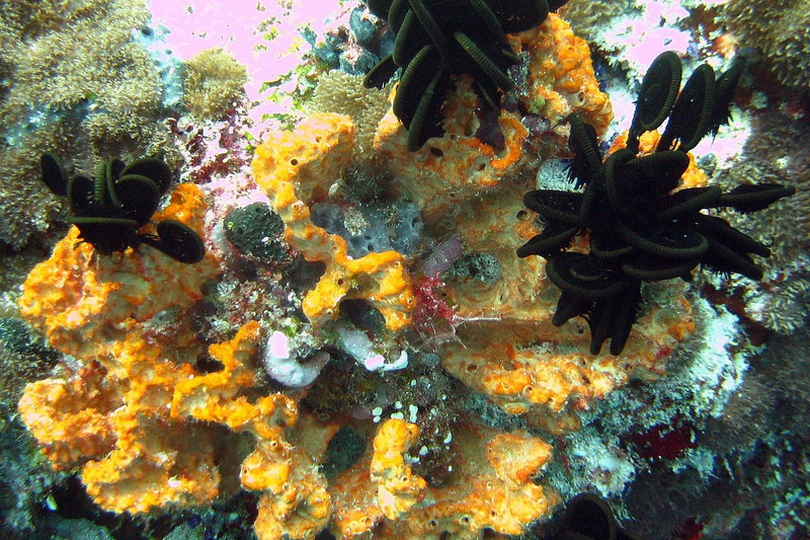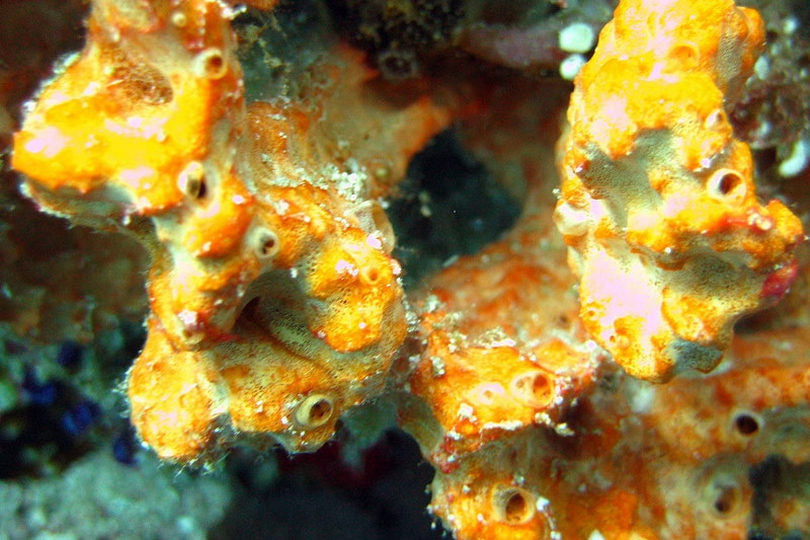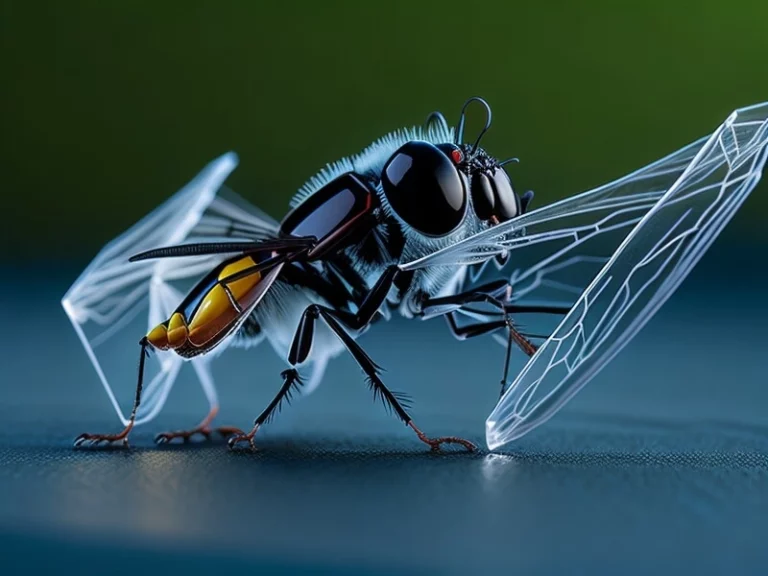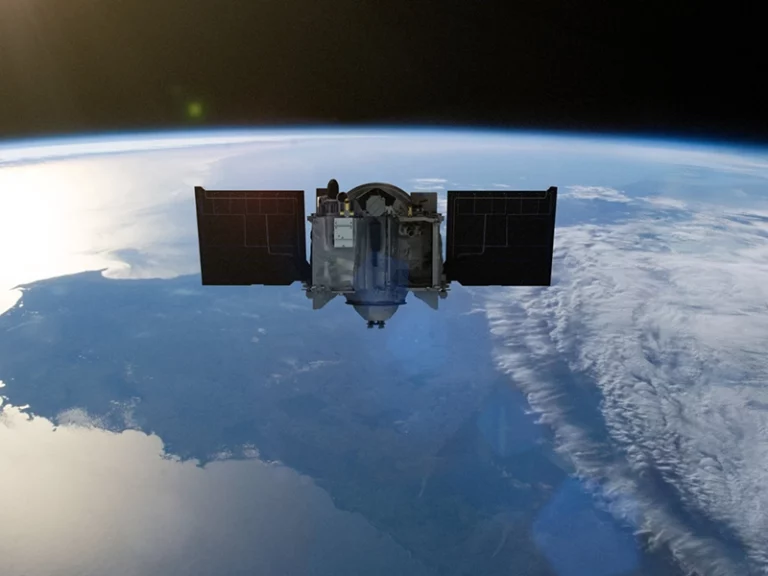Climate change continues to pose a severe threat to marine ecosystems, with significant implications for sea sponges and their essential microbial symbiosis.
A recent study conducted by researchers from the University of New South Wales (UNSW) sheds light on the impact of rising temperatures on these ancient sea-dwelling creatures.
Published in ISME Communications, the study reveals that even a modest increase in temperature can disrupt the delicate balance between sea sponges and their vital microorganisms.
This finding underscores the urgent need to address climate change and protect these remarkable organisms and their symbiotic relationships.
Importance of Sea Sponges in Marine Ecosystems
Sea sponges play a critical role in marine ecosystems, providing shelter and sustenance to numerous marine creatures. Moreover, these fascinating organisms contribute to nutrient recycling by filtering vast quantities of seawater daily.
However, their significance extends beyond ecological balance. Sea sponges host a diverse range of microbes, which may hold the key to addressing pressing medical challenges.
These symbiotic microbes are involved in nutrient recycling, energy production, defense against predators and diseases, and even detoxification processes within the sponge’s body.
Uncovering the Vulnerability of Sponges to Climate Change
Researchers at UNSW, in collaboration with experts from the Australian Institute of Marine Science and Victoria University of Wellington, have uncovered alarming vulnerabilities within certain sponge species due to climate change.
The study focused on Stylissa flabelliformis, a common sponge found in the Great Barrier Reef and the West Indo-Pacific.
The team observed that exposure to just a 3°C increase in temperature resulted in the abandonment of a crucial microbe by the sponge, potentially leading to tissue poisoning and decay.

Exploring the Symbiotic Relationship
Sea sponges, which date back 545 million years, rely on symbiotic relationships with microbes for their survival and well-being. These microbes fulfill essential functions such as nutrient recycling, energy production, defense against predators and diseases, and detoxification processes.
Like the vital organs of the sponge, they are akin to its liver and kidneys. The intricate symbiosis between sponges and microbes has been extensively documented, and it is now evident that certain sponge species are more susceptible to warmer water temperatures than previously thought.
The Microbial Makeup: Key to Survival
The researchers analyzed the microbial composition of Stylissa flabelliformis, known for its sensitivity to temperature increases. Comparing healthy sponges in cooler temperatures with necrotic (dying) sponges in warmer waters, they observed significant differences in microbial types.
Of particular concern was the absence of a group of microbes known as archaea in the dying sponges, whereas they accounted for 10% of the microbes in healthy sponges.
These archaea played a crucial role in detoxifying the ammonia produced by the sponge, preventing its accumulation and subsequent tissue damage.
Lack of Adaptability and Implications for the Future
The study revealed that the symbiotic relationship between Stylissa flabelliformis and its microbes lacks the flexibility required to adapt to the high temperatures predicted to become the norm by the end of the century.
The researchers caution that these findings have immediate relevance rather than being distant prospects. Australia has already experienced weeks of temperatures 1.5°C-3°C above normal, mirroring the conditions used in the study.
These results highlight the urgent need to address climate change and protect marine biodiversity for the well-being of our planet.
Unlocking the Medicinal Potential of Sea Sponges
Beyond their ecological importance, sea sponges are an invaluable resource for drug discovery. Marine invertebrates, particularly the symbiotic microbes residing within sponges, produce a significant majority of molecules with anti-tumor and anti-pathogen properties found in the ocean.
These symbiotic relationships represent a vital aspect of maintaining healthy oceans and harbor immense potential for pharmaceutical and commercial applications.
Therefore, preserving the biodiversity of sea sponges and their associated microbes is not only crucial for ecological balance but also essential for medical advancements and the well-being of humanity.
Recognizing the Risk of Microbial Diversity
The research team involved in this study emphasizes that climate change impacts extend beyond charismatic marine animals. The risk of eroding the biodiversity of seemingly unassuming organisms, such as sea sponges and their microbial hosts, poses a significant threat to the delicate balance of life on our planet.
By highlighting the vulnerability of these organisms and the disruption of their symbiotic relationships, this study serves as a reminder of the urgent need to address climate change.
Preserving microbial diversity is critical not only for healthy oceans but also for the overall health and well-being of our planet.
Conclusion
The recent findings from UNSW researchers shed light on the vulnerability of sea sponges and their symbiotic relationships to climate change. As temperatures rise, these ancient creatures lose vital microbes, leading to tissue decay and potential poisoning.
The study underscores the immediate and tangible consequences of climate change on marine ecosystems. Urgent action is needed to curb greenhouse gas emissions and protect the delicate balance of life in our oceans.
Preserving the biodiversity of sea sponges and their microbial symbionts is not only crucial for ecological stability but also holds immense promise for medical advancements that can benefit humanity.
In this other article, we explore another similar topic: Scientists Discover Cause Of Giant Underwater Landslides In Antarctica.
Let us take collective action to safeguard our planet’s marine heritage and ensure a sustainable future for all!
Reference:
A marine mystery: Discovering the link between climate change and sea sponge loss. (2023, June 14). Link to the source.





